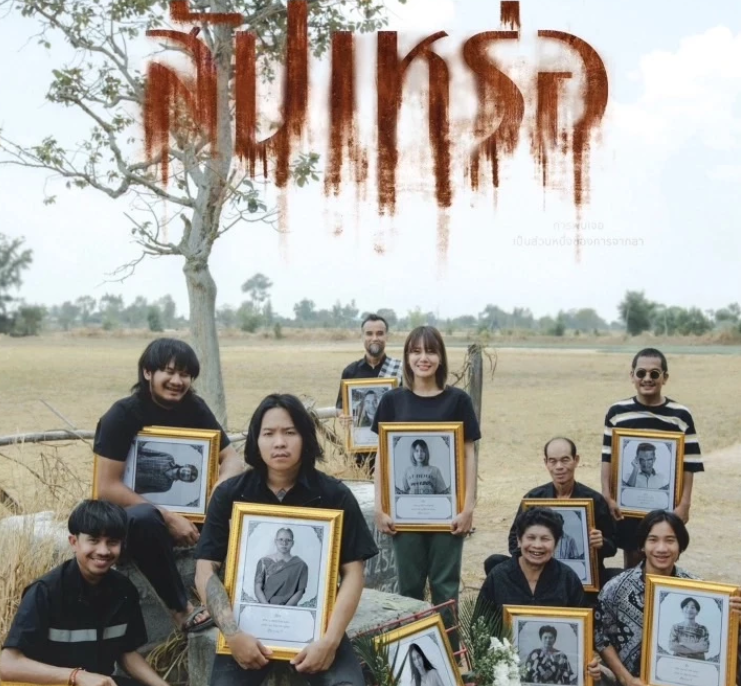Is Thai film industry, the weak pillar of the soft power edifice, on the cusp of better days?

Prime Minister Srettha Thavisin recently led Cabinet members to watch a popular movie, Sup-pa-rer (The Undertaker), as proof of his commitment to promoting Thai soft power in general and the film industry in particular.
Critics dismissed his move as hype, and a publicity stunt to gain political mileage from the current national fever embracing the record-grossing movie.
Targeted industries
The previous Prayut Chan-o-cha government had promoted five industries — “5 Fs” — as part of efforts to promote Thai soft power on the global stage.
The “5 Fs” — food, film, fashion, fighting and festival — were considered by the Prayut government as having the potential to increase economic value for the country. For example, Thailand is one of the leading food exporting countries and many Thai dishes, desserts and tropical fruits are recognized worldwide. Muay Thai kickboxing is also quite well known globally as a Thai martial art. But Thailand has not had much success with fashion and films.
The Pheu Thai-led government recently established a national committee on soft power strategy, chaired by Srettha, with Paetongtarn Shinawatra, the newly elected leader of the Pheu Thai Party, as vice chairwoman.
The government plans to launch the “One Family One Soft Power” scheme, and to create the Thai Creative Content Agency to drive the ambitious task.
The government hopes to create a workforce of 20 million people engaging in the creative economy, generating a minimum income of 200,000 baht for each household annually, or a combined 4 trillion baht for the national economy.
The government has identified 11 industries for promotion, namely food, sports, festival, tourism, music, book, film, game, art, design, and fashion.
Real truths on soft power
Overall, Thailand’s ranking in the global soft power index is in the top one-third of a group of countries surveyed and studied by Brand Finance, the world’s leading brand valuation consultancy.
According to the Global Soft Power Index 2023, Thailand’s ranking is 41st among 121 countries and third in Asean, where Singapore is on top followed by Malaysia. Globally, the top five are the United States, United Kingdom, Germany, Japan and China respectively.
“Thailand is doing alright in relation to soft power and has the potential to develop these industries further,” said Kevalin Wangpichayasuk, deputy managing director at Kasikorn Research Center.
“The concept of soft power was first introduced in 1990 by Joseph Nye, who argued that there was an alternative method of foreign policy for states to win the support of others; rather than the traditional hard power method, which involves using military and economic means as the primary method of achieving its goals,” Brand Finance says.
“Power is, not simply ‘the ability or right to control people or things’, but crucially it is also the possession of influence over others and the ‘ability to act or produce an effect’.
Ultimately, soft power is the ability to convert states rather than coerce them, or simply ‘getting others to want what you want’, which is achieved by proving your shared values and norms”, Brand Finance adds.
The soft power index is inferred from a weighting of respondent data, taking into account a nation’s brand perceptions across the three key performance indicators of Familiarity, Reputation, and Influence.
“Soft power rests on several pillars. Soft power is derived and exercised in a variety of ways. We have divided the building blocks of soft power into 8 key pillars: business and trade, governance, international relations, cultured heritage, media and communication, education and science, people and values, and sustainable future,” according to Brand Finance’s website.
Thai film industry
The unexpected runaway success of the horror-comedy Thai movie, “The Undertaker”, has raised hopes of infusing a new lease of life for the local film industry.
The Thai film industry has long been struggling, as few filmmakers have been able to win over audiences and make money. Most local consumers have a low opinion about the quality of local films, partly stemming from low-cost production.
But “The Undertaker”, which opened for screening on October 5, has grossed more than 600 million baht as of October 29, the highest in a decade by any local film. The film revolves around the duties of an undertaker in a rural village in a northeastern province.
Thibaan Studio Co, a small filmmaker, spent only about 10 million baht in making the hit movie.
Critics and fans said its success lay in the simplicity of its storyline, the interesting portrayal of the way of life of villagers, the comic flavour, cultural values, and related death rituals.
The movie makes people feel good, nostalgic about their hometown, and think of family members who have passed away.
The success of “The Undertaker” and a couple of other films in the last month, has sparked hopes that Thai movies may have found a connection with the masses, and could contribute to Thailand’s soft power.
But there are some concerns. Tongte-Thiti Srinual, the director of “The Undertaker”, has highlighted the role of the film censors under the Ministry of Culture, which could increase the cost of filmmaking.
Coincidentally, the Thai Censorship Board on October 24, lifted a ban on the screening of “DogGod” after 25 years. The satirical movie is the story of a cult that worships a dog as god. The film was earlier deemed as insulting to all religions.
Meanwhile, Macbeth horror movie “Shakespeare Must Die” remains banned since 2012 by the Thai government, as a “national security threat”.
This suggests film censorship is a serious impediment to the growth of the local film industry. Prime Minister Srettha has not yet talked about the film censorship issue.
Another pain point is the bargaining power in the film supply chain. The box office calls the shots, according to some critics.
“There should be a mechanism to facilitate small film producers to access funding and ensure a level playing field for those involved in the film industry,” said Kevalin.
Suchart Sawasdsri, an outspoken artist, also called for scrapping the controversial lese majeste law — Article 112 of the Penal Code — blaming it for restricting freedom of expression. He said soft power would mean nothing if such a draconian law remains unchanged.
Looking ahead
Surapong Suebwonglee, a member of the national committee on soft power development, is confident that the initiative would help lead Thailand out of the middle-income trap.
He said the current economic structure does not provide a solution. So the government has to help workers to develop new skills suitable for a creative economy.
Kevalin is also optimistic about the country’s potential to create more economic value through creative activities such as food, tourism, sports and film.
Avid moviegoer Thunnaphat Wiphutwattanakorn, views “The Undertaker” as a good quality movie despite the low budget. “But I’m not sure how foreigners would respond to it. I hope Thai movies could be sold to overseas consumers,” she added.
Poowanat Janton, a fan of the “Thibaan” series, said that the local film industry had the potential to grow, as many new Thai movies had hit the theatres recently.
Not everyone agrees with the soft power push. Vimut Vanitcharoenthum, a former economics lecturer at Chulalongkorn University, said that he was not sure if the Srettha government understood the true meaning of soft power.
By Thai PBS World’s General Desk






